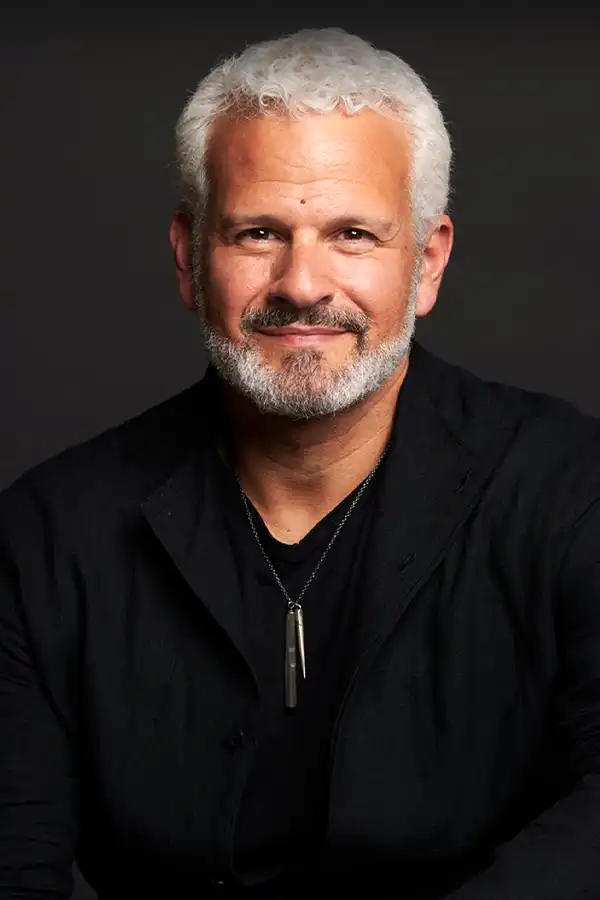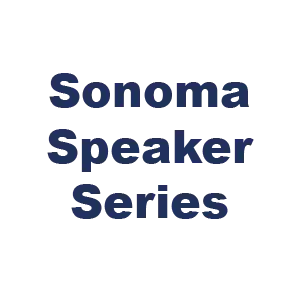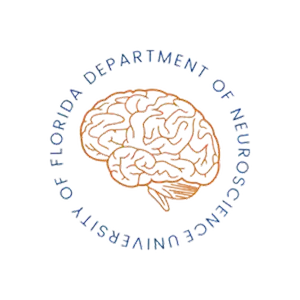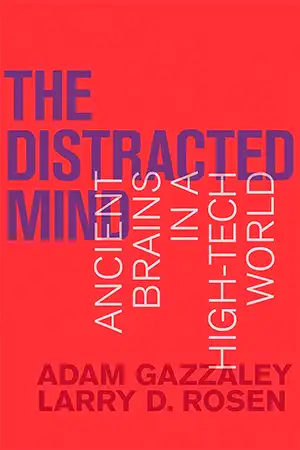
Adam Gazzaley
World-class neuroscientist Dr. Adam Gazzaley is the founder and executive director of Neuroscape, a UCSF state-of-the-art neuroscience center, and an award-winning professor of neurology, physiology, and psychiatry.
Meet Adam Gazzaley
For the past decade, Dr. Gazzaley has been pioneering research on how customized video games and VR products could be used to treat disorders like ADHD, depression, and dementia. Moreover, he is one of the world’s leading experts on how our brains are affected by distractions and multitasking. He is also well-known for his keynote and motivational speaking. Adam Gazzaley is available to be booked for corporate and private events. Contact the Mollie Plotkin Group today to inquire about Adam Gazzaley’s fees.
Want to book Adam Gazzaley for an event?
Contact the Mollie Plotkin Group at (215) 995-0905 to book Adam Gazzaley for corporate or private events, keynote speeches, workshops, fireside chats, motivational speaking, or virtual appearances. Our agency will work directly with your organization and our keynote speakers to create an unforgettable event.
The Mollie Plotkin Group is the leading keynote speakers agency and entertainment bureau bringing excitement to audiences, clients, and employees. We represent subject-matter experts in every possible field, so whether we’re your partner in creating a memorable meeting, or your meeting planner’s secret weapon in securing the perfect keynote speaker, we’re in this with you.
Biography
Academic Background
Dr. Adam Gazzaley obtained an M.D. and a Ph.D. in Neuroscience at the Mount Sinai School of Medicine in New York, completed his Neurology residency at the University of Pennsylvania, and postdoctoral training in cognitive neuroscience at the University of California, Berkeley. He is now a David Dolby Distinguished Professor in Neurology, Physiology, and Psychiatry at the University of California, San Francisco and the Founder & Executive Director of Neuroscape, a translational neuroscience center engaged in technology creation and scientific research.
He designs and develops novel brain assessment and optimization tools to advance education, wellness, and medical practices. This novel approach involves the development of custom-designed, closed-loop video games integrated with the latest advancements in software and hardware (virtual/augmented reality, motion capture, mobile physiological recording devices, transcranial electrical brain stimulation, and more). Above all, Dr. Gazzaley’s goal is to improve human cognitive function across the globe.
Investor & Advisor
Dr. Gazzaley is also co-founder and Chief Science Advisor of Akili Interactive, one of Fast Company’s 2022 World’s Most Innovative Companies and a company that develops therapeutic video games, and co-founder and Chief Scientist of JAZZ Venture Partners, a venture capital firm investing in experiential technology to improve human performance. Additionally, Adam has been a scientific advisor for over a dozen organizations including Apple, GE, Nielsen, Deloitte, Magic Leap, the VOID, and even the President’s Council on Fitness, Sports & Nutrition.
Media
Dr. Gazzaley has filed multiple patents for his inventions, notably his invention of the first video game cleared by the FDA as a medical treatment, and authored over 130 scientific articles.
His research and perspectives have been consistently profiled in high-impact media, such as The New York Times, New York Times Magazine, New Yorker, Wall Street Journal, TIME, Discover, Wired, PBS, NPR, CNN, and NBC Nightly News. In addition, He wrote and hosted the nationally-televised PBS special The Distracted Mind with Dr. Adam Gazzaley, and co-authored the 2016 MIT Press book The Distracted Mind: Ancient Brains in a High-Tech World, winner of the 2017 PROSE Award in the category of Biomedicine and Neuroscience.
Dr. Gazzaley has also received many other awards and honors, including the 2015 Society for Neuroscience Science Educator Award, the 2020 Global Gaming Citizen Honor, and Newsweek’s Greatest Disrupters of 2021.
Hire Adam Gazzaley
For over a decade, Dr. Gazzaley has delivered over 600 invited presentations around the world. He has keynoted in five continents and over two dozen countries. Moreover, all of those keynotes have captured the imagination of diverse audiences: academics, entrepreneurs, investors, educators, lawyers, bankers, doctors, judges, children, healthcare professionals, technologists, engineers, congressmen, and more. Some of the organizations and conferences he has spoken for include:
- The White House
- TED
- NVIDIA
- Congress
- SXSW
- Apple
- Amazon
- Wired Health
- CES
- Sony
- Microsoft
- GE
- Deloitte
- RedBull
- Samsung
- Salesforce
How to Hire Adam Gazzaley
Find out how to hire Adam Gazzaley to appear at your next event. Contact the Mollie Plotkin Group to inquire about Adam Gazzaley’s availability and cost. When booking Adam Gazzaley for an event, we need to know the type of venue and location the event will take place. Adam Gazzaley is a popular choice for corporate events, private events, and virtual events. So, you can click the Check Availability button or contact us and an MPG Adam Gazzaley booking agent will get back to you within 48 hours.
Adam Gazzaley Booking Price
How much to book Adam Gazzaley depends on the type of event. So, the cost to hire Adam Gazzaley for corporate or private events is available by contacting a Mollie Plotkin Group Agent. Notably, Adam Gazzaley is available for conferences, festivals, private parties, and events. Just contact the Mollie Plotkin Group and tell the booking agent the proposed date, time, and location.
Contact For Availability
Upcoming Engagements
Our speakers are in high demand! View their upcoming events.
SOCi ReImagine 2025 – Keynote Speaker Gary Vaynerchuk – Chicago, IL
Trimble Insight Tech Conference 2025 – Keynote Speaker Molly Fletcher – New Orleans, LA
Key Audience Takeaways
The Distracted Mind: Ancient Brains in a High-Tech World
Our increasingly information-saturated world, coupled with growing expectations of constant availability and immediate responsiveness, places excessive demands on our brains. The consequences are detrimental effects on our safety, health, education, workplace, and relationships with family and friends.
Dr. Gazzaley takes us on a journey into how and why we struggle with interruptions and distractions that emerge from both our inner and outer worlds. The very essence of how we’ve evolved makes most humans collide head-first with our brain’s limitations in cognitive control.
He concludes by offering practical strategies for modifying our behavior, as well as the latest innovations from his research in enhancing our brain’s function so that we can better survive and thrive in the information age.
AI and the Brain
Dr. Gazzaley explores how artificial intelligence and neuroscience are coming together to expand the boundaries of human potential. From AI-powered video games that improve cognitive function of seniors to smart wearables that detect depression from a person’s voice, discover how cutting-edge technology is enhancing our minds and mental well-being.
Drawing on his groundbreaking work in experiential medicine and closed-loop neurotechnology, Dr. Gazzaley reveals a future where personalized, adaptive brain therapies could help us learn faster, focus deeper, and overcome mental health challenges.
Attendees will hear inspiring case studies – notably, his advancement of the first FDA-approved video game. Importantly, this talk doesn’t shy away from the big questions: What are the ethical and societal implications when brains and AI intertwine? How do we safeguard privacy and humanity in this high-tech revolution? With equal parts scientific insight and visionary foresight, your audience will come away with a fresh understanding of emerging neurotechnologies, a glimpse of tomorrow’s brain-enhancing tools, and an appreciation for how this new frontier benefits everyone in a responsible, human-centered way.
Technology Meets Neuroscience – A Vision of the Future of Brain Optimization
A fundamental challenge of modern society is the development of effective approaches to enhance brain function and cognition in both the healthy and impaired. For the healthy, this should be a core mission of our educational system andfor the cognitively impaired this should be a primary goal of our medical system. Unfortunately, neither of these systems has effectively met this challenge.
Dr. Gazzaley presents a novel approach he developed at UCSF Neuroscape that uses custom-designed video games to achieve meaningful and sustainable cognitive enhancement via personalized closed-loop systems.
He also shares the next stage of his research program, which integrates closed-loop video games with the latest technological innovations in software (e.g., brain-computer interfaces, AI) and hardware (e.g., virtual reality, mobile EEG, motion capture, physiological recording devices, brain stimulation) to enhance our brain’s information processing systems with the ultimate aim of improving our brain function.
Raging Against Aging: The Future of Brain Optimization and Longevity
One of the greatest achievements of modern times has been to dramatically increase the longevity of our species. While this is a cause for celebration, it should be recognized that it has resulted in numerous challenges in maintaining quality of life due to a near-ubiquitous decline in cognitive function with aging.
Dr. Gazzaley describes the latest research on the aging brain and the challenges faced by an increasingly older population on a global level.
He shares practical advice on how to retain our cognition as we age, as well as a novel approach that he’s been developing to use cutting-edge technology (custom-designed video games, artificial intelligence, brain stimulation, and Virtual reality) to achieve meaningful and sustainable cognitive enhancement throughout our lives.
The Promise of Virtual Reality and the Brain
The long-awaited arrival of virtual and augmented reality is upon us. Consumer-available products hold seemingly infinite promise in changing communication, entertainment, and commerce. But what about our brains?
Dr. Gazzaley takes us on a deep dive into how virtual and augmented reality technologies can help enhance our cognition, with benefits to our memory, attention, decision-making, and even empathy and compassion.
In this context of improving cognition, he discusses the potential educational and medical uses for these powerful new technologies.
The Cognition Crisis
Our lives on this planet have improved in so many amazing ways over the last century. On average we are now healthier, less poor, more literate, less violent, and longer living. Despite these positive changes, signs are present that we are in the midst of an emerging crisis. This is a crisis of our minds – a cognition crisis.
Dr. Gazzaley presents his latest perspectives on the difficulties we humans are currently facing in terms of our attention, perception, creativity, emotional regulation, and compassion. Anxiety, depression, attention deficits, and dementia affect half a billion people around the world with an economic toll in the trillions. And these numbers are rising, notably in our children.
He proposes that the goal of enhancing cognition should placed on par with other pressing global priorities. He concludes with a presentation of potential solutions using modern-day technology.
Client Testimony for Adam Gazzaley
“Dr. Adam Gazzaley enthralled our audience with his charismatic presence and his comprehensive research on the distracted brain, detailing various strategies to improve our attention span, multitasking skills, and cognitive functions. The attendees departed feeling more focused and optimistic.” – Kathy Witkowicki, Co-Founder/CEO, Sonoma Speaker Series

“Dr. Gazzaley was a brilliant and captivating speaker that artfully presented a talk that was accessible to the public while still being compelling for the seasoned neuroscientists. Needless to say, Dr. Gazzaley’s ability to effectively communicate complex ideas in a way that is engaging and accessible is truly remarkable.
The McKnight Brain Institute community was buzzing with excitement after Dr. Gazzaley’s talk. Personally, I was thoroughly impressed by the presentation, and his passion for advancing the field of neuroscience was palpable. I highly recommend Dr. Gazzaley as a keynote speaker for any event or conference.” – Sara N. Burke, Vice Chair for Faculty Development, Department of Neuroscience, University of Florida

Books

Most of us will freely admit that we are obsessed with our devices. We pride ourselves on our ability to multitask. We can do it all, 24/7! Never mind the errors in the email, the near-miss on the road, and the unheard conversation at the table. In The Distracted Mind, Adam Gazzaley and Larry Rosen explain why our brains aren't built for multitasking, and suggest better ways to live in a high-tech world without giving up our modern technology.
Our brains are limited in their ability to pay attention. We don't really multitask. But rather we switch rapidly between tasks. Distractions and interruptions, often technology-related, collide with our goal-setting abilities. We want to finish this paper/spreadsheet/sentence, but our phone signals an incoming message and we drop everything. Even without an alert, we decide that we “must” check in on social media immediately.
Gazzaley and Rosen offer practical strategies, backed by science, to fight distraction. They don't suggest that we give up our devices, but that we use them in a more balanced way.